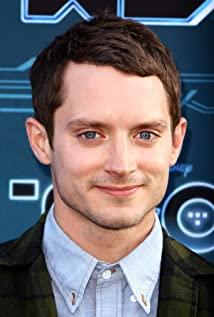Tomorrow is the weekend. After dinner, I had nothing to do, so I went to Xunlei to find a movie to watch to pass the time. When I saw "Deep Mystery" and decided to take a look, it was undoubtedly the title that attracted me.
After watching it, I found that this is not a suspense film or a reasoning film, but expresses the author's philosophical concepts through the film. I read the film reviews at random, and most of them said that the film was average and not very easy to understand. Indeed, from the point of view of reasoning, suspense and other factors, the watchability is not strong, and it is purely ordinary. The mathematical symbols used for reasoning on the main line have little to do with the idea to be expressed. But the ideas it wants to express are of realistic critical significance. According to my personal understanding, I will put aside the storyline (the plot of solving the case is not attractive), and talk about the meaning of the film.
At the beginning of the film, Professor Selton's speech has made it clear that the idea expressed in the whole film is "except mathematics, there is no absolute truth. All discussions are logical abuses." It should be noted that the film It has little to do with the "butterfly effect" mentioned several times by the professor.
The details of the film are critiques of logical determinism. The
protagonist Martin, a staunch advocate of logical determinism, believes that the essence of the world is mathematical and that everything in reality can be arranged with a logic.
When playing against the wall, his actions are determined according to some parameters of the ball. Of course, he succeeded, but what about playing against people? He thinks it can be calculated, so he played a few games with the nurse, but he lost. He thinks that the algorithm needs to be improved. He doesn't know that he is facing a person and is uncertain. This is also what the professor mentioned later. Senberg's uncertainty principle.
The uncertainty principle means that the action of measuring itself will change the original state of the measured object, which is an important theory in quantum science proposed by Heisenberg. For example, if we want to observe the position of an electron, we have to let a photon observe it, but the electron is so light that as soon as the photon touches the electron, the electron is knocked away, and now the position and velocity have changed, so that we The position and velocity of the electrons cannot be measured at the same time. If Martin is playing with people, his opponent knows that he is calculating, and of course he will interfere, that is, reconnaissance and counter-reconnaissance, which is the dilemma of Martin's logic theory.
Stump mathematician: The crazier logician who thinks that there is a law in everything, but finds the views of madmen so incomprehensible that he turns himself into a madman in order to discover the law of their thinking. Seeing this crazy mathematician makes me think of an "infinite monkey theorem" about infinite theory, if an infinite number of monkeys are typing randomly on an infinite number of typewriters for an infinite amount of time, then at some point, they must Will type out all of Shakespeare's works. What I want to express here is not about the theory of infinity. This theory can be proved logically, but in reality, it is impossible to achieve. In 2003, scientists at a British zoo "experimented" the infinite monkey theorem by putting a computer and a keyboard into the primate park. Unfortunately, the monkeys didn't type out any sonnets. According to the researchers, they produced only five pages that were almost entirely the letter "S". The poor mathematician tried to understand the laws of the madman, but not all problems could be understood by logical thinking.
Howard Green in London: A logical murder, Green hated his wife, in order to achieve the perfect murder plan, he analyzed 14 ways to kill in his diary, and his wife saw his diary, in self-defense, and killed Green, the court acquitted his wife. It seems that there is nothing wrong with it, but the truth is that the diary is fake and the counterfeiter is his wife's lover, a counterfeit maker. The truth of everything is also unexpected!
The ending is a bit unexpected, but also the finishing touch. Martin found out the real culprit through reasoning, but found that he was the initiator. He reasoned out the superficial truth, but what was hidden behind it could never be obtained by logic.
Let's sum up the film's point of view with the point of view of non-determinists: the development and change of things are unpredictable, all human behavior is determined by the purpose of the individual (the purpose of the professor is the murderer to cover up the truth), the individual has a choice In freedom, individual choices, intentions, and decisions are not restricted by objective conditions, and there is no necessary causal relationship.
In general, the significance of this film is greater than its viewing. Perhaps it is a reflection on Western rationalism and neglect of naturalism. Of course, there may be some hidden ideas in the film or some kind of criticism of reality. I don’t know much about it. , is not analyzed.
Mr. Fang Zhouzi should watch this movie, he has an excessive application of logic. Of course I am a supporter of Mr. Fang. I have my reservations about his denial of TCM, all of which I agree with.
The above are all personal opinions, if there are any mistakes, please point out.
View more about The Oxford Murders reviews











